
Grünerløkka: Oslo's Creative Heartbeat
Grünerløkka, often referred to as 'Løkka' by the locals, is the vibrant, artistic soul of Oslo. Once a working-class district, this area has transformed into a hub of creativity and culture. Its streets are lined with colorful murals and eclectic street art, making every corner a visual treat. The neighborhood is dotted with quirky cafes, unique boutiques, and vintage shops, offering a delightful blend of the old and the new. The parks in Grünerløkka are perfect for a leisurely stroll or a relaxed afternoon. Olaf Ryes Plass and Sofienberg Park are popular spots where you can soak up the local atmosphere. During the weekends, the Birkelunden flea market is a must-visit for treasure hunters and those looking to pick up a unique souvenir. Foodies will find themselves in paradise here. Grünerløkka boasts a diverse culinary scene, with everything from traditional Norwegian dishes to international cuisine. The Mathallen Food Hall is a gastronomic hotspot where you can sample a wide array of local and global delicacies. As the sun sets, Grünerløkka comes alive with its buzzing nightlife. Trendy bars, lively pubs, and live music venues make it a great place to experience Oslo's vibrant social scene. Whether you're exploring by day or night, Grünerløkka's bohemian charm is sure to captivate your heart.
Local tips in Grünerløkka
- Visit the Birkelunden flea market on Sundays for unique finds and local crafts.
- Take a leisurely walk along the Akerselva River for picturesque views and peaceful spots.
- Check out the street art on Thorvald Meyers gate for a glimpse of local creativity.
- Stop by Mathallen Food Hall to sample a variety of local and international foods.
- Enjoy a picnic at Sofienberg Park, a favorite among locals.
Grünerløkka: Oslo's Creative Heartbeat
Grünerløkka, often referred to as 'Løkka' by the locals, is the vibrant, artistic soul of Oslo. Once a working-class district, this area has transformed into a hub of creativity and culture. Its streets are lined with colorful murals and eclectic street art, making every corner a visual treat. The neighborhood is dotted with quirky cafes, unique boutiques, and vintage shops, offering a delightful blend of the old and the new. The parks in Grünerløkka are perfect for a leisurely stroll or a relaxed afternoon. Olaf Ryes Plass and Sofienberg Park are popular spots where you can soak up the local atmosphere. During the weekends, the Birkelunden flea market is a must-visit for treasure hunters and those looking to pick up a unique souvenir. Foodies will find themselves in paradise here. Grünerløkka boasts a diverse culinary scene, with everything from traditional Norwegian dishes to international cuisine. The Mathallen Food Hall is a gastronomic hotspot where you can sample a wide array of local and global delicacies. As the sun sets, Grünerløkka comes alive with its buzzing nightlife. Trendy bars, lively pubs, and live music venues make it a great place to experience Oslo's vibrant social scene. Whether you're exploring by day or night, Grünerløkka's bohemian charm is sure to captivate your heart.
Iconic landmarks you can’t miss
The Vigeland Park
Explore the captivating art and serene nature of Vigeland Park, an open-air sculpture museum in Oslo featuring over 200 unique sculptures.
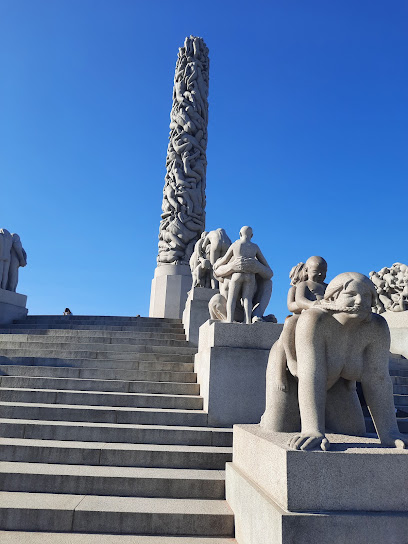
Sofienberg Park
Explore Sofienberg Park in Oslo, a serene urban oasis perfect for relaxation, recreation, and cultural experiences amidst nature's beauty.
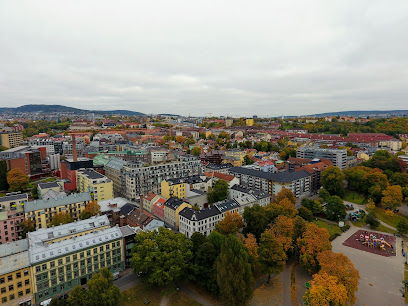
Birkelunden Public Park
Experience the charm of Birkelunden Public Park, an urban oasis in Oslo perfect for relaxation, culture, and local interactions.
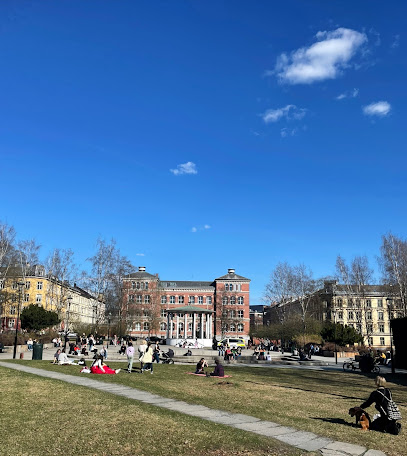
Nedre foss
Experience the serene beauty of Nedre Foss in Grünerløkka, Oslo, where nature meets vibrant urban culture.
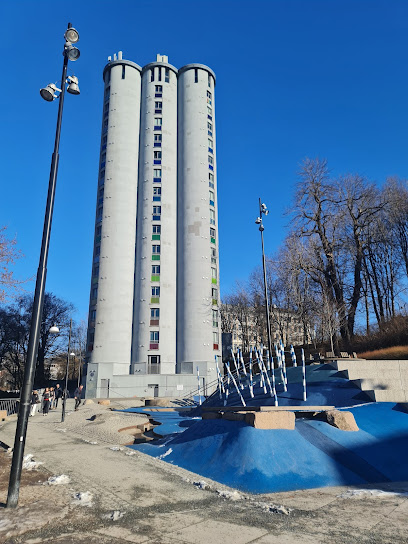
Tullinløkka street light
Explore the dazzling Tullinløkkas Street Light in Oslo, where modern artistry meets urban charm, creating a breathtaking experience for all visitors.
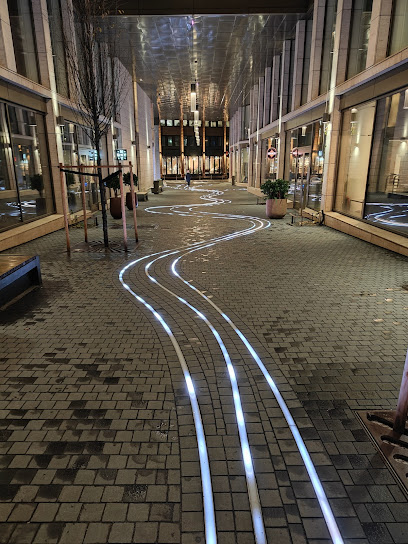
Ingens gate
Discover the artistic spirit of Ingens Gate in Grünerløkka, Oslo, where vibrant street art and local culture come together to create a unique experience.
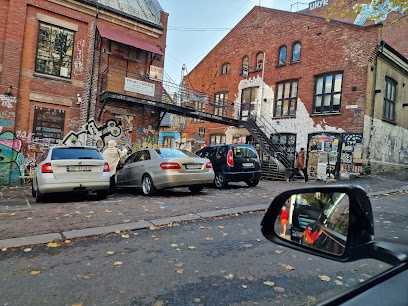
Outside Former Deichmanske
Discover the vibrant atmosphere and historical significance of Outside Former Deichmanske, a key attraction in Oslo's cultural landscape.
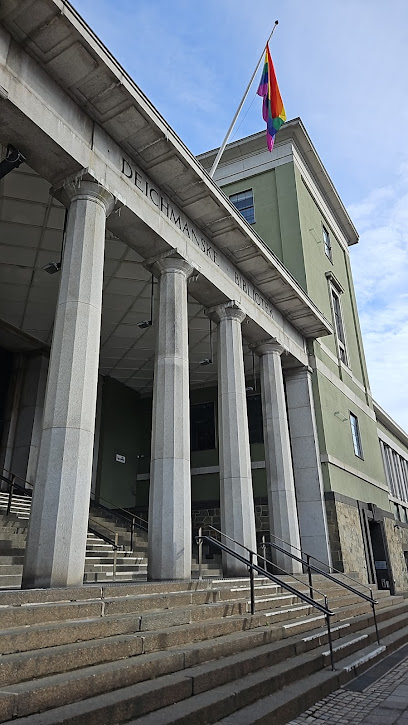
Akers mekaniske verksted historisk lokasjon
Explore the historical legacy of Akers Mekaniske Verksted, a landmark showcasing Oslo's industrial heritage in the heart of Grünerløkka.
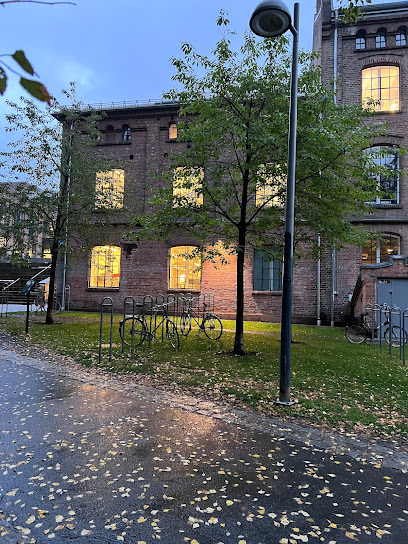
Middle of the street
Explore the vibrant heart of Grünerløkka in Oslo; a hub of art, culture, and local charm waiting to be discovered.
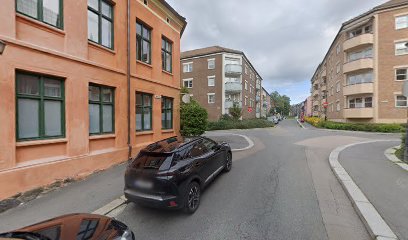
Oslo tag
Explore Grünerløkka, Oslo's artistic district filled with vibrant culture, delightful cafes, and unique boutiques.
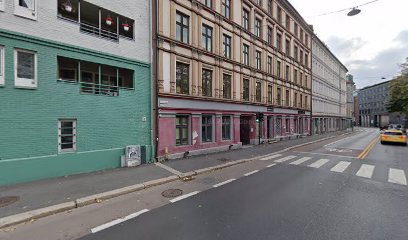
Unmissable attractions to see
Frognerparken
Explore Frognerparken, Oslo's stunning urban park featuring breathtaking sculptures, lush gardens, and serene walking paths in the heart of the city.
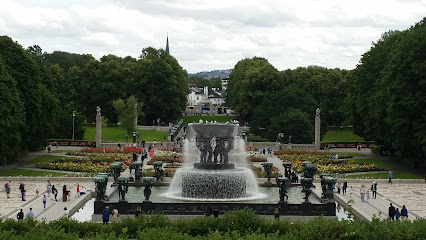
The Botanical Garden
Explore the beauty and tranquility of The Botanical Garden in Oslo, a lush retreat featuring diverse plant species and stunning landscapes.
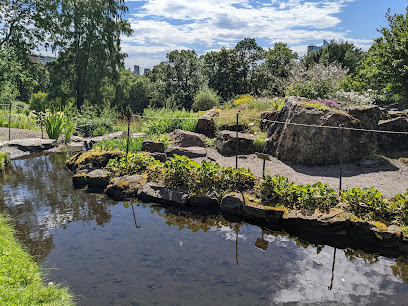
Naturhistorisk museum
Explore the Naturhistorisk Museum in Oslo for an enlightening journey through natural history, featuring fascinating exhibits and beautiful gardens.
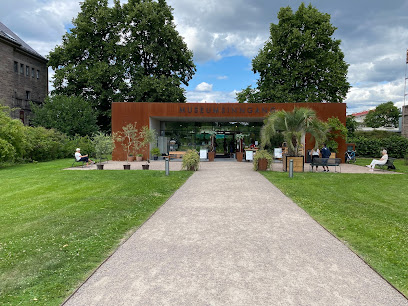
Birkelunden Public Park
Discover the vibrant atmosphere of Birkelunden Public Park in Oslo, where relaxation meets local culture amid lush greenery and community events.
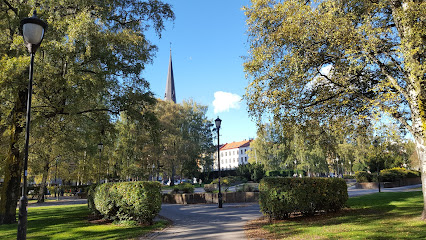
Nedre foss
Discover the serene beauty of Nedre Foss in Grunerlokka, Oslo, where nature meets urban charm, perfect for leisurely strolls and relaxation.
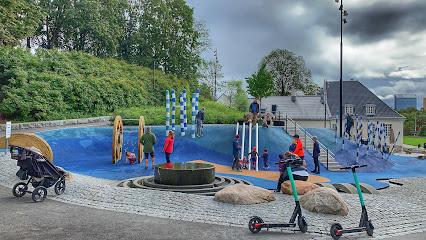
The Viking Garden
Explore the serene beauty of The Viking Garden in Oslo, a botanical haven rich in history and vibrant plant life, perfect for peaceful strolls and discovery.
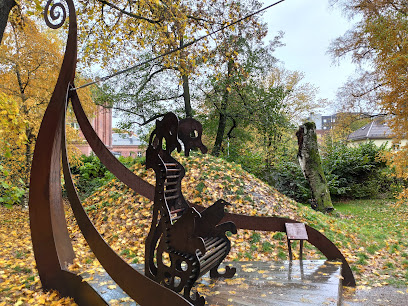
Skulpturpark
Explore Skulpturpark in Oslo: A serene outdoor sculpture park blending art and nature in the heart of Grünerløkka.
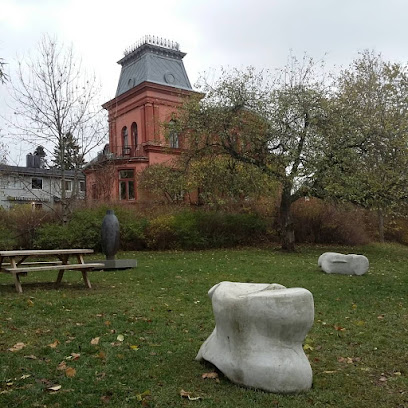
Outside Former Deichmanske
Explore the vibrant atmosphere of Outside Former Deichmanske in Oslo's Grünerløkka, a beautiful blend of history and modern culture.
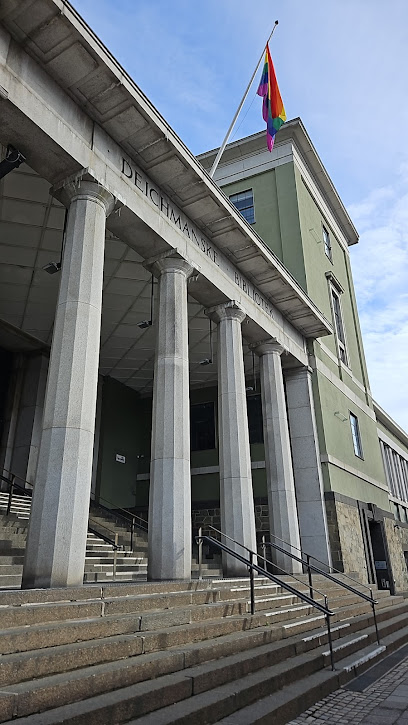
Essential places to dine
Villa Paradiso Grünerløkka
Experience authentic Italian flavors at Villa Paradiso Grünerløkka - your go-to spot for delicious pizza and pasta in Oslo's trendy district.
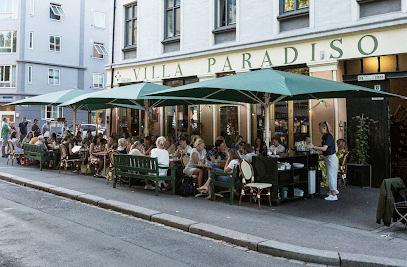
Way Down South
Experience authentic American barbecue at Way Down South in Oslo's Grünerløkka district—where smoky flavors meet vibrant culture.
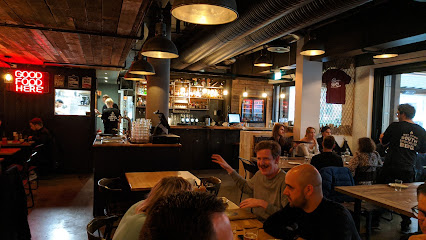
Eldhuset
Experience the best of American cuisine at Eldhuset in Oslo's vibrant Grünerløkka district—where flavor meets atmosphere.
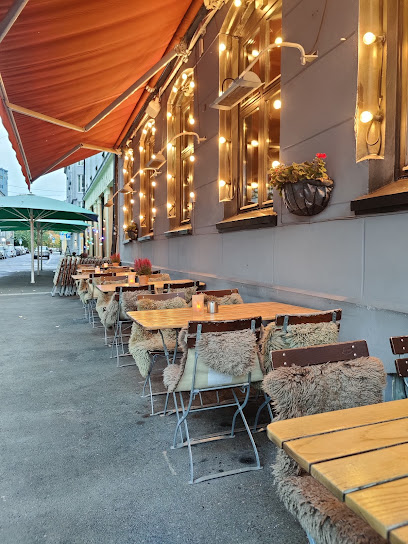
Mucho Mas
Experience the vibrant fusion of Californian and Mexican flavors at Mucho Mas in Oslo's Grünerløkka district.
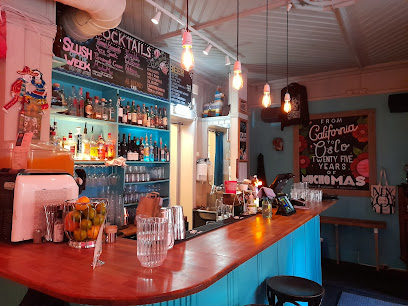
Delicatessen Grünerløkka
Experience authentic Spanish tapas at Delicatessen Grünerløkka in Oslo's vibrant district—where every bite tells a story.
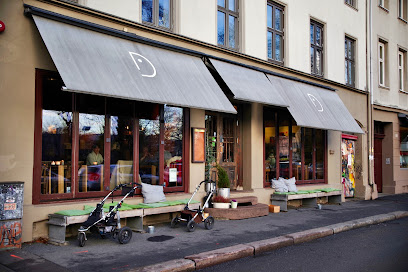
Le Benjamin bar & bistro
Discover exquisite cuisine at Le Benjamin Bar & Bistro in Oslo’s trendy Grünerløkka district - where every meal becomes an unforgettable experience.
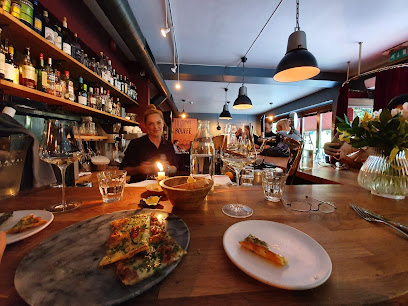
Txotx
Indulge in authentic Basque flavors at Txotx in Oslo's Grünerløkka - a culinary journey not to be missed!
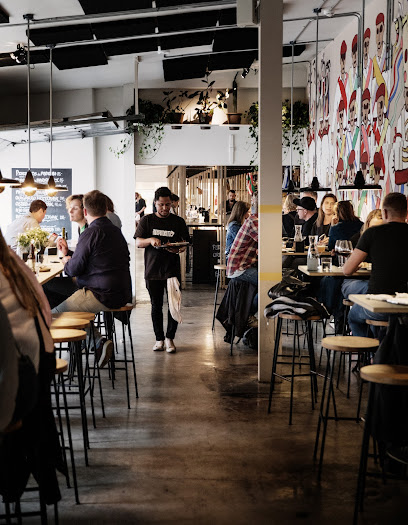
Mangiamo Ristorante & Bar
Discover authentic Italian flavors in the heart of Oslo's vibrant Grünerløkka district at Mangiamo Ristorante & Bar.
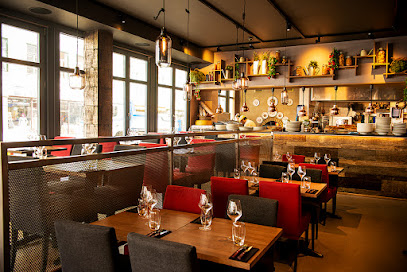
Markveien Mat & Vinhus AS
Experience the perfect blend of Norwegian ingredients and French culinary techniques at Markveien Mat & Vinhus in Oslo's Grünerløkka district.
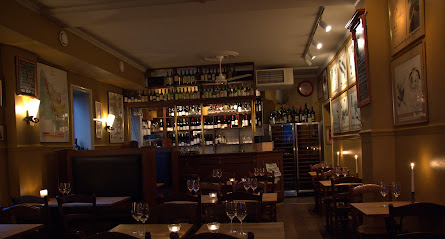
Miss Gin - Vietnamese Street Food
Experience authentic Vietnamese street food in Oslo's Grünerløkka at Miss Gin – where every bite tells a story.
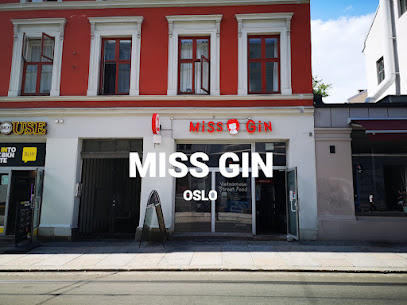
Markets, malls and hidden boutiques
Søstrene Grene
Discover a world of creativity and inspiration at Søstrene Grene, Oslo's beloved store for art supplies and unique home decor.
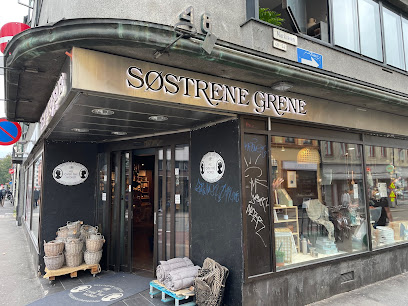
Frøken Dianas Salonger
Discover unique vintage treasures at Frøken Dianas Salonger in Oslo's Grünerløkka, where fashion meets sustainability in a charming boutique setting.
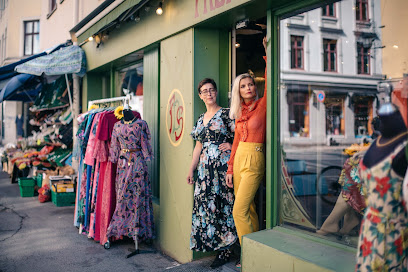
Velouria Vintage
Explore Velouria Vintage in Oslo's Grünerløkka for unique second-hand fashion and sustainable style.
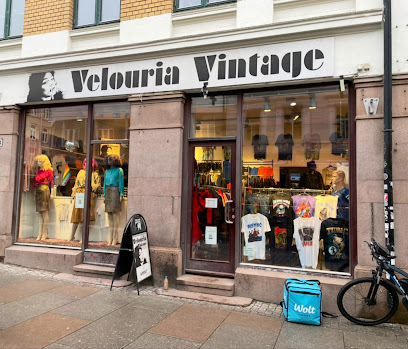
Good Vibes Vintage
Explore the eclectic world of vintage fashion at Good Vibes Vintage in Oslo, where unique style meets sustainable shopping.
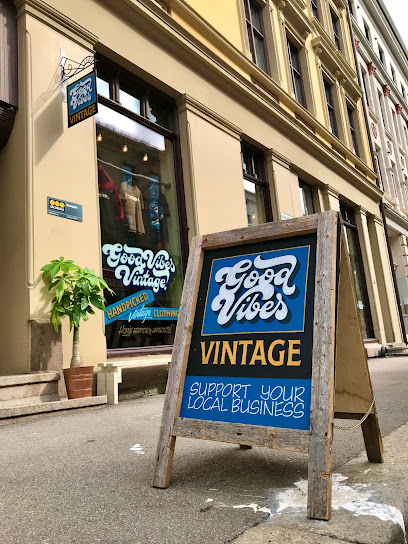
Manillusion
Discover Manillusion, Oslo's chic women's clothing store in Grünerløkka, offering unique styles that capture the essence of Norwegian fashion.
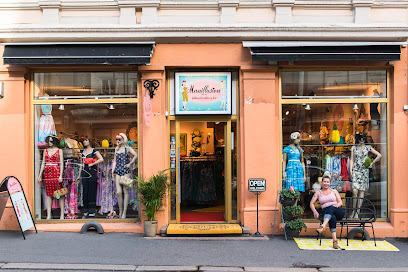
FUTUR Store
Explore unique fashion at FUTUR Store in Grünerløkka, Oslo - a trendy clothing destination that embodies style and sustainability.
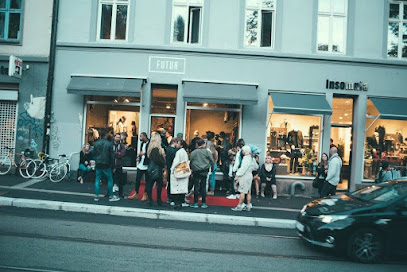
Zuzanna G
Explore Zuzanna G, the chic women's clothing boutique in Grünerløkka, Oslo, featuring unique fashion and accessories that celebrate individual style.
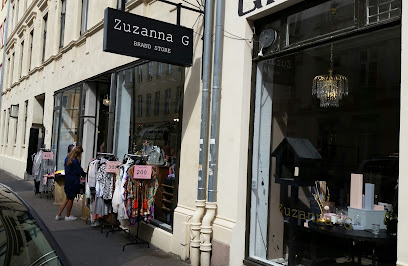
Tint
Explore trendy women's fashion at Tint, a chic boutique in Oslo's creative hub, Grünerløkka, for a unique shopping experience.
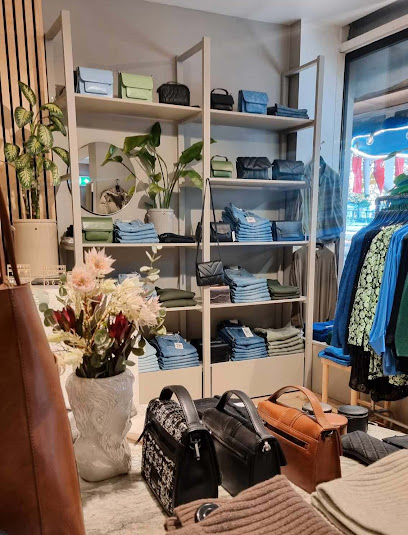
Sirkel Oslo
Explore the vibrant local craftsmanship at Sirkel Oslo, where unique souvenirs and authentic Norwegian culture come together in one trendy store.
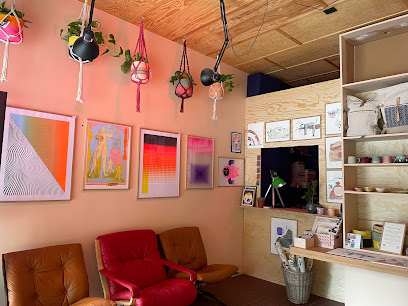
Lillelam boutique Grünerløkka
Explore Lillelam Boutique in Grünerløkka for stylish, high-quality, and sustainable children's clothing that parents love.
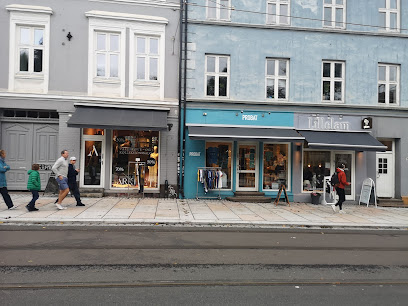
Essential bars & hidden hideouts
Grünerløkka Brygghus
Discover the lively Grünerløkka Brygghus, a bar offering craft beers and a welcoming atmosphere in Oslo's trendy cultural district.
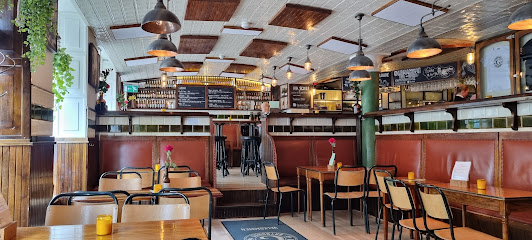
Nedre Løkka Cocktailbar & Selskapslokaler
Discover the vibrant nightlife of Oslo at Nedre Løkka Cocktailbar, where exceptional cocktails meet an inviting atmosphere in Grünerløkka.
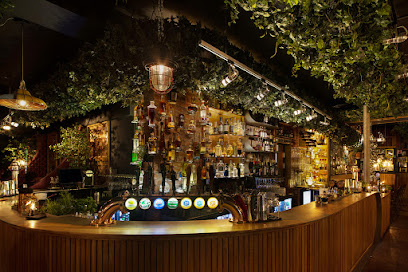
Rebell
Discover the vibrant atmosphere and exquisite cocktails at Rebell, a must-visit bar in Oslo's artistic Grünerløkka district.
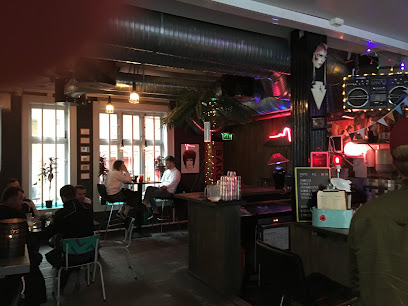
Territoriet
Discover the finest wines and artisanal coffee at Territoriet, Oslo’s premier wine bar located in the heart of Grünerløkka.
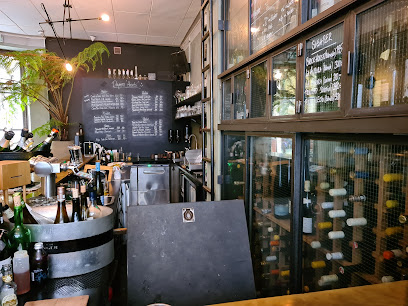
Glød
Discover Glød, a lively bar in Oslo's Grünerløkka district, known for its creative cocktails and vibrant nightlife atmosphere.
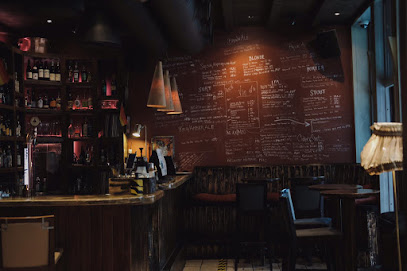
The Shamrock Pub
Experience the warmth of Irish hospitality at The Shamrock Pub in Oslo's vibrant Grünerløkka district, a perfect spot for drinks and hearty pub fare.
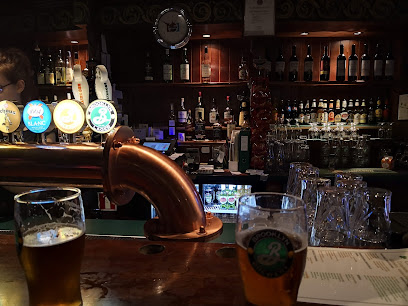
Hytta Bar
Experience the vibrant nightlife and cozy café culture at Hytta Bar in Oslo's trendy Grünerløkka neighborhood.
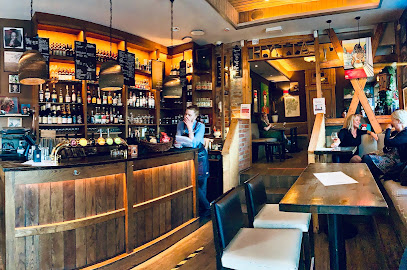
Bar Boca
Discover the charm of Bar Boca, an artistic cocktail bar in Grünerløkka, Oslo, known for its creative drinks and cozy atmosphere.
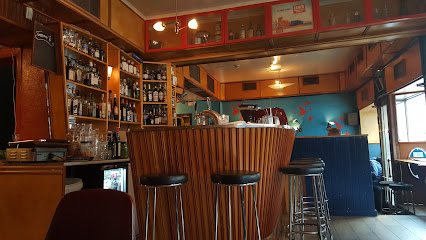
Perla Bar
Discover the vibrant atmosphere of Perla Bar in Grünerløkka, Oslo, where eclectic decor and delicious drinks await you.
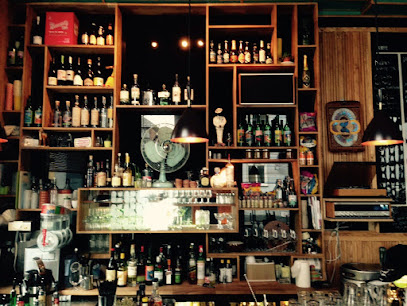
Meyers Bar
Discover Oslo's Meyers Bar – a cocktail haven in Grünerløkka, where vibrant atmosphere meets exceptional mixology for an unforgettable night.
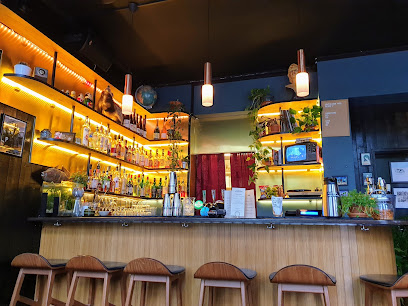
Local Phrases
-
- HelloHei
[hey] - GoodbyeHa det
[ha deh] - YesJa
[yah] - NoNei
[nay] - Please/You're welcomeVær så god
[ver soh good] - Thank youTakk
[tahk] - Excuse me/SorryUnnskyld
[oon-skyld] - How are you?Hvordan har du det?
[vohr-dahn har doo deh] - Fine. And you?Bra. Og du?
[bra oh doo] - Do you speak English?Snakker du engelsk?
[snahk-er doo eng-elsk] - I don't understandJeg forstår ikke
[yay for-stor eek-eh]
- HelloHei
-
- I'd like to see the menu, pleaseJeg vil gjerne se menyen, takk
[yay vil yer-neh seh meh-nen tahk] - I don't eat meatJeg spiser ikke kjøtt
[yay spee-ser ee-keh shøtt] - Cheers!Skål!
[skohl] - I would like to pay, pleaseJeg vil gjerne betale, takk
[yay vil yer-neh beh-tah-leh tahk]
- I'd like to see the menu, pleaseJeg vil gjerne se menyen, takk
-
- Help!Hjelp!
[yel-p] - Go away!Gå bort!
[goh bohrt] - Call the Police!Ring politiet!
[reen pol-it-ee-et] - Call a doctor!Ring en lege!
[reen ehn leh-geh] - I'm lostJeg har gått meg vill
[yay har goh-me vill] - I'm illJeg er syk
[yay air sook]
- Help!Hjelp!
-
- I'd like to buy...Jeg vil kjøpe...
[yay vil shø-peh] - I'm just lookingJeg ser bare
[yay sehr bah-reh] - How much is it?Hvor mye koster det?
[vohr moo-eh koo-stehr deh] - That's too expensiveDet er for dyrt
[deh ehr foor deert] - Can you lower the price?Kan du senke prisen?
[kahn doo sehn-keh pree-sehn]
- I'd like to buy...Jeg vil kjøpe...
-
- What time is it?Hva er klokka?
[vah ehr kloh-kah] - It's one o'clockKlokka er ett
[kloh-kah ehr et] - Half past (10)Halv ti
[halv tee] - MorningMorgen
[mor-gen] - AfternoonEttermiddag
[et-ter-mee-dahg] - EveningKveld
[kveld] - YesterdayI går
[ee gor] - TodayI dag
[ee dahg] - TomorrowI morgen
[ee mor-gen] - 1En
[en] - 2To
[too] - 3Tre
[treh] - 4Fire
[fee-reh] - 5Fem
[fem] - 6Seks
[seks] - 7Syv
[siv] - 8Åtte
[oh-teh] - 9Ni
[nee] - 10Ti
[tee]
- What time is it?Hva er klokka?
-
- Where's a/the...?Hvor er en/et...?
[vohr ehr en/et] - What's the address?Hva er adressen?
[vah ehr ah-drehs-sehn] - Can you show me (on the map)?Kan du vise meg (på kartet)?
[kahn doo vee-seh may (poh kahr-teh)] - When's the next (bus)?Når går neste (buss)?
[nahr gohr neh-steh (booss)] - A ticket (to ....)En billett (til ...)
[en bee-leht (teel)]
- Where's a/the...?Hvor er en/et...?
History of Grünerløkka
-
Grünerløkka's history dates back to the 19th century when it began as a working-class neighborhood. The area was originally agricultural land, primarily used for farming and fruit cultivation. The establishment of factories and industrial enterprises during the industrial revolution transformed Grünerløkka into a vibrant urban district. By the late 1800s, the influx of workers led to a significant population increase and the development of tenement buildings.
-
The early 20th century marked a cultural renaissance in Grünerløkka, with the establishment of various artistic and cultural movements. The presence of artists, writers, and musicians turned the neighborhood into a hub of creativity. The Grünerløkka district became known for its bohemian lifestyle, attracting a diverse community seeking inspiration and expression. Cafés, galleries, and theaters emerged, contributing to the rich cultural fabric of Oslo.
-
After World War II, Grünerløkka faced a decline as industries moved out of the city center, leading to economic stagnation. The neighborhood became associated with neglect and urban decay. However, in the late 20th century, urban renewal initiatives began to reshape Grünerløkka. The local government and community organizations focused on revitalizing the area, leading to the restoration of historic buildings and the promotion of local businesses.
-
In the 2000s, Grünerløkka experienced a transformation as it became a trendy neighborhood popular among young professionals and artists. This 'hipster revolution' brought new life to the area, with an influx of cafés, boutiques, and cultural venues. While the revitalization led to a flourishing local economy and increased tourism, it also sparked concerns about gentrification and the displacement of long-term residents, highlighting the ongoing challenges of urban development.
-
A significant feature of Grünerløkka is the Mathallen food hall, which opened in 2012. This cultural landmark celebrates the region's culinary diversity and local produce, offering a space for food enthusiasts and entrepreneurs. The market reflects the neighborhood's commitment to sustainability and community, serving as a gathering place for locals and visitors alike, further enhancing Grünerløkka's reputation as a vibrant cultural destination in Oslo.
Grünerløkka Essentials
-
Grünerløkka is easily accessible from various neighborhoods in Oslo. The Oslo Metro Line 5 (Bergkrystallen) takes you directly to Grünerløkka, with the closest stations being Grønland and Schous Plass. Trams 11 and 12 also serve the area, with stops at Bislett and Olaf Ryes Plass. If you are coming from Oslo Central Station, you can take bus routes 34 or 70, which will take you to the heart of Grünerløkka in around 15-20 minutes.
-
Grünerløkka is a compact and walkable neighborhood, making it easy to explore on foot. For those preferring to cycle, bike rentals are available through Oslo Bysykkel, with numerous bike stations scattered throughout the area. Public transport options include the Metro and trams, as well as buses that connect to other parts of Oslo. Taxis and rideshare services like Uber are also readily available.
-
Grünerløkka is generally considered a safe area for tourists. However, standard safety precautions should be taken, especially at night. Areas around Grønland can experience higher levels of petty crime, such as pickpocketing, particularly in crowded places. It is advisable to remain vigilant and keep personal belongings secure.
-
In case of emergency, dial 112 for police, 110 for fire services, and 113 for medical emergencies in Norway. There are hospitals and urgent care facilities in Oslo, with the nearest being the Oslo University Hospital. It is recommended to have travel insurance that covers medical care and other emergencies.
-
Fashion: Do wear comfortable clothing suitable for walking. Don't wear overly casual attire in fine dining establishments. Religion: Do respect local customs and dress appropriately when visiting religious sites. Public Transport: Do validate your ticket before boarding. Don't eat or drink on public transport. Greetings: Do greet people with a friendly smile and a nod. Don't initiate physical contact unless you are familiar with the person. Eating & Drinking: Do try local cafes and street food. Don't be overly loud or disruptive in public spaces.
-
To experience Grünerløkka like a local, explore the street art that adorns many walls in the area. Visit the Mathallen food hall for a taste of local and international cuisines. Attend local events at the various parks, which often host markets and festivals. Engage with local baristas and shopkeepers, as they can provide insider tips on the best spots to visit.
Nearby Cities to Grünerløkka
-
Things To Do in Fredrikstad
-
Things To Do in Karlstad
-
Things To Do in Skagen
-
Things To Do in Kristiansand
-
Things To Do in Gothenburg
-
Things To Do in Örebro
-
Things To Do in Frederikshavn
-
Things To Do in Stavanger
-
Things To Do in Bergen
-
Things To Do in Jönköping
-
Things To Do in Aalborg
-
Things To Do in Linköping
-
Things To Do in Västerås
-
Things To Do in Norrköping
-
Things To Do in Molde











